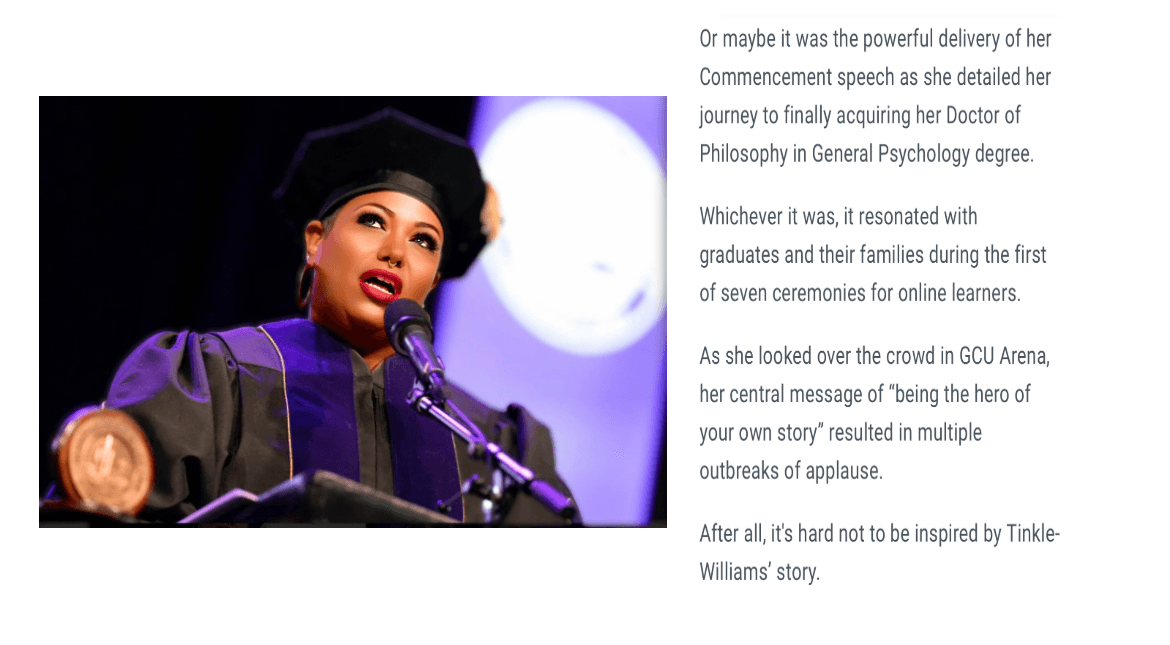We recently connected with Keziah Tinkle-Williams, PhD and have shared our conversation below.
Keziah, thanks for taking the time to share your stories with us today Do you have a hero? What have you learned from them?
All journeys begin with a single courageous step in which the hero must make a decision to leave the realm of their known world to enter the world of the unknown, in spite of any fear and misgivings. In many ways, the hero becomes courageous by making the deliberate choice to set forth into the unknown despite their fear. My first step on this journey began seven years ago, when I woke up calling the ceiling fan a “lamp,” replacing random words in my sentences with numbers, forgetting my sons’ names, and walking into door jambs.
I was finally diagnosed with MS in 2015 after three months of suffering stroke-like symptoms. During this time, I was sent to a cardiologist, an endocrinologist, and a neurologist, all while carrying baby aspirin in my purse and wearing a heart monitor. My husband was instructed to watch me at all times and call an ambulance if my symptoms worsened. After a spinal tap finally confirmed what I had been telling my doctors all along, I felt liberated. I now knew the purpose of my quest. The inner dragon that I must slay. The cave I had feared to enter would hold the treasure that I seek.
When my mother, who was the only parent that I had ever known, died six months after my diagnosis. Strangely, I heard my call to adventure. I would not take my cognitive ability and mobility for granted. I would not accept cognitive decline as my fate. I spent the next year fulfilling my childhood dream of taking ballet classes, while I began researching doctoral programs. As a participant in the McNair Scholar in the early 2000s, I had been prepared for doctoral studies through involvement in various scholarly activities. Now was the time to grasp the precious academic ring I had always coveted—a doctoral degree. I entered the program as a learner, and after four and a half years of rigorous work, dedication, tears, and grit, I transformed into a different person and emerged as a phenomenologist at the end of the journey. I became the hero of my story.

As always, we appreciate you sharing your insights and we’ve got a few more questions for you, but before we get to all of that can you take a minute to introduce yourself and give our readers some of your back background and context?
When I completed my PhD in General Psychology with an emphasis in Cognition and Instruction, I believed I reached the end of a journey; however, it was just the beginning. Due to my diverse experience in various spaces, I have consulted for a variety of organizations, including two, national Multiple Sclerosis foundations and the Arizona Wildlife Federation. In addition, as a seasoned orator, I blend my educational background in Rhetoric and Composition, higher education and leadership experience, and living with MS to create engaging customized workshops, presentations, and motivational speeches for diverse institutions about personal growth and development, gamified learning, cognitive decline, leadership, diversity, and AI.

What do you think is the goal or mission that drives your creative journey?
My mission for higher education is to become “the key to freedom for all.” Every person deserves the freedom to live their life on their own terms, regardless of their race, gender, sexual orientation, or socioeconomic status. Through my experience in the education system, I have gained knowledge and expertise in diversity, equity, and inclusion, with a specific focus on racial justice. As the only black student in my monochromatic classroom during the 70s, I recognized the importance of embodying these values and decided to become a teacher in the commercial and professional services industry. I have dedicated my life to ensuring everyone has access to higher education and a brighter future. With over 20 years of experience in education and as an educational researcher and consultant, I am confident I can offer valuable skills and insights to those seeking to promote diversity and equity in their institutions.

For you, what’s the most rewarding aspect of being a creative?
The reason that I entered higher education is the same reason that I leveraged my experience to branch out, I wanted to empower individuals to become the creators of their metaphorical journeys, slaying any inner dragons along the way, to create a world of kindness and love for one another. The most rewarding aspect has been seeing the personal transformation that students and participants have experienced both during and after my workshops and presentations. By shifting their perspectives, they change their lives by changing their minds.
Contact Info:
- Website: https://drkeziahjenisis.com



Image Credits
Photo 2:
Story excerpt by Ashlee Larrison
Photo by Ralph Fresno


